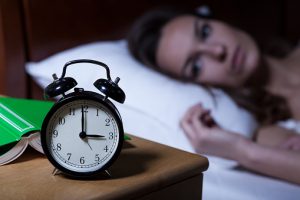 Researchers from the University of Colorado Anschutz Medical Campus and the University of Colorado Boulder have found a link between a lack of sleep and diabetes. Lack of sleep has also been associated with a rise in obesity, metabolic syndromes, mood disorders, cognitive impairment and accidents.
Researchers from the University of Colorado Anschutz Medical Campus and the University of Colorado Boulder have found a link between a lack of sleep and diabetes. Lack of sleep has also been associated with a rise in obesity, metabolic syndromes, mood disorders, cognitive impairment and accidents.
Lead author, Kenneth Wright Jr., Ph.D., said, “We found that when people get too little sleep it leaves them awake at a time when their body clock is telling them they should be asleep. And when they eat something in the morning, it impairs their ability to regulate their blood sugar levels.”
Advertisement
The researchers looked at 16 healthy patients; half of them slept for five hours for five days to mimic a work week. After the five days, they slept for nine hours for five days. The other half of the participants completed the sleep schedule in the opposite order.
Blood tests were taken, showing that those who slept for five hours a night had reduced insulin sensitivity, which can increase the risk of diabetes. When they slept for nine hours their insulin sensitivity returned to normal, but it wasn’t enough time to return it back to baseline.
Co-author Dr. Robert Eckel said, “We did a study last year showing weight gain is caused by a lack of sleep and now we find that there could also be a risk of diabetes. While the exact mechanisms are unknown, it’s clear that a lack of sleep causes metabolic stress.”
Dr. Wright added, “We have a clock in our brain which controls 24-hour patterns in our physiology and behavior. It also controls the release of the hormone melatonin which signals our body that it’s night time. High melatonin levels at night tell us to sleep.”
Advertisement
If a person uses their sleeping time for eating, it can alter the way the body responds to food. Wright explained, “The body has to release more insulin to keep blood sugar levels normal. Our bodies can adapt initially, but over the long term they may not be able to sustain it.”
Eckel concluded, “In this study we are dealing with healthy individuals. I think the next step is to test those at a higher risk of diabetes.”
